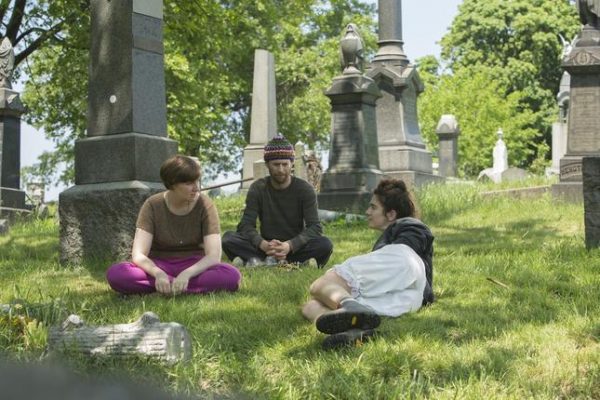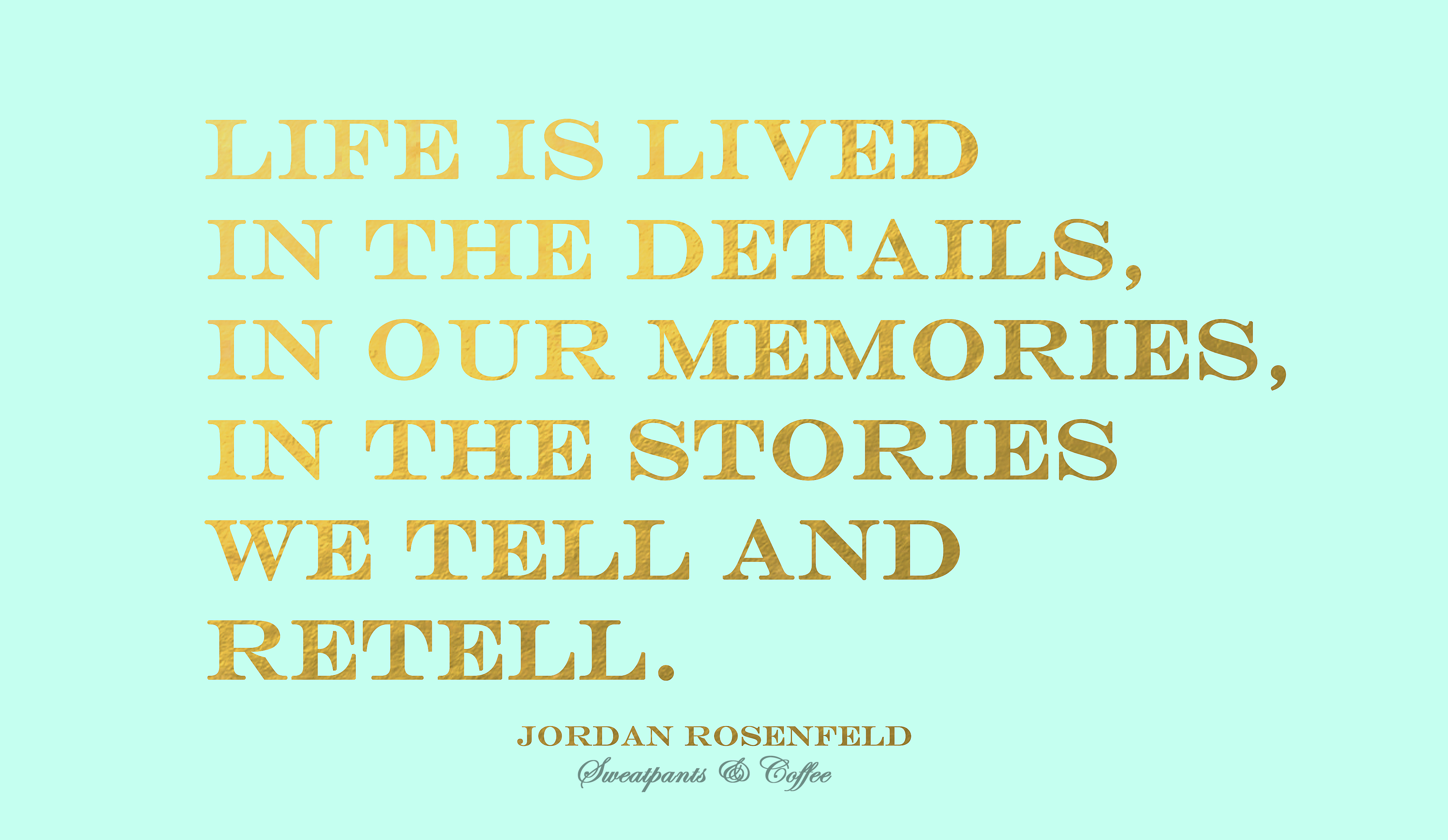“As writers, we live twice,” says author Natalie Goldberg, which I would like to say is true, as a writer, myself. However, sometimes I wonder if we writers really only live in the moment we write down our experiences; that is, rather than being swept away on those unreliably chaotic waves of feelings, we learn to hone in on the details around us, grounding ourselves in the concrete moment as a means of survival. For instance, I can tell you with decent level of accuracy about the short, crooked ceiling in the attic apartment I shared with my mother in her darkest years of addiction when I was as young as three. I recall the way the soft white curtain flapped in the window like an overgrown moth, and the horrid floral linoleum, but I can’t remember, exactly, what it felt like to find her slumped unconscious, unable to be roused.
As I was mulling this over, I watched an episode of Lena Dunham’s hit show Girls, Season 3, “Dead Inside.” Hannah, Dunham’s 20-something navel-gazing protagonist, who has recently gotten a book deal for her memoir, is bereft when her editor, David, dies. She’s not sad, per se; she’s worried about the fate of her book contract and spends much of the rest of the episode grousing, while the characters around her express horror at her callousness.

Source: Tumblr
While others who didn’t even know David grieve his sudden death, Hannah catalogues details and wrings her hands over how this is the worst thing to possibly happen to her—the loss of her book deal, not David’s death.
After Hannah and her boyfriend Adam fight—he takes her lack of sorrow as a sign that maybe she doesn’t really care about anyone deeply—Adam’s mentally unstable sister, Caroline, tells Hannah a sad story about their cousin with Muscular Dystrophy whose dying wish, at age twelve, was to go to prom. Adam, Caroline says, fulfilled the cousin’s dream and later, they laid her to rest in the “tiny dress” she’d worn that night.
Hannah zeroes in on the detail of the “tiny dress” worn by the dying girl, asking whether its size was due to her illness or something else. Caroline is horrified, and the viewer could easily see Hannah as a horrible, cold person (despite the fact that Caroline, it turns out, has made the story up).

I laughed a lot during the episode and also cringed at the ways that I too am always mucking about in the sludge of experience for gems of understanding, just like Hannah. I’m not saying that my heart isn’t genuinely open to your tale of loss or humiliation, but I would be lying if I didn’t admit there is a part of me taking stock of the particular way your eyes sink in with grief, or the way your smile crooked into your cheek, almost coy, revealing a dimple when you talk about a long-ago love. Or the way the night air smelled of that acute metallic whiff of rain, even though it hadn’t, when you had your accident; or the way the hills looked obscenely bleak and dry when I learned that your daughter had died.
We writers are not cold-hearted vultures after your emotional suffering; but we are constantly picking at the bones of experience and rewriting it, or placing it just so, like Ichibana, the art of flower arranging, in our heads. We writers tend to best figure out what we feel and think by writing everything down. Perhaps the writing impulse stems from a need to make sense of horror, terror and the variety of feelings in between.
When my empathy center is triggered, I begin a translation process, seeking understanding and weaving events into story. In the process, the weighty coils of dread, grief or horror slip their grip on me and conjure a pulse of meaning, even if there is no larger reason for what happened. It’s an impulse so strong and instinctive I can’t stop myself; it’s my default setting.
The writer in me knows that Hannah of “Girls” doesn’t lack compassion or empathy when she asks about “the tiny dress”; she’s saving that detail, perfect in its symbolism of frailty and death—that life is short, that our lives barely fit, that tragedy strikes without warning—for the right context to make sense of it.
The episode can be seen as homage to writers and how powerful the need to express oneself is; for Hannah the loss of her book, i.e. her voice, is tantamount to, and even worse than, death.
Yes, there is some self-absorption involved, but what art doesn’t require a deep inward turning focus? Would we rather the writers of the world kept their observations to themselves? Writers capture and hold up for all of us the moments that are too painful to bear as we live them, the moments that numb our senses and shock time into pause. Indeed, couldn’t all of us benefit from writing down our experiences, whether we are writers are not? In some ways I feel Facebook and Instagram has done for the layperson what writing does for me: what is it about the way your child is poised to jump off a ladder, or the arrangement of a bowl of fruit, or the expression on an exhausted stranger’s face that you felt you needed to capture and share?
Life is lived in the details, in our memories, in the stories we tell and retell.
I’m grateful for the writers who have helped me see that sometimes the only way to understand the gaffes and tragedies, even the moments of joy so big and sudden they shock us full of gasping breath, is to tell a story about it, to hold it up at impossible angles and catalogue the small details; I am especially grateful to the writers, like Dunham, who can also make us laugh, at ourselves and at the many absurdities of life. Without writers to hone in on and capture the quotidian details, it would be a less meaningless existence for this writer, at least.





Leave a Reply